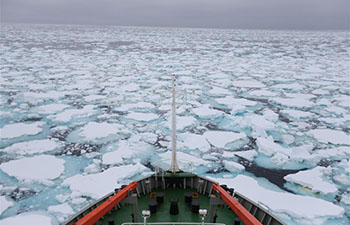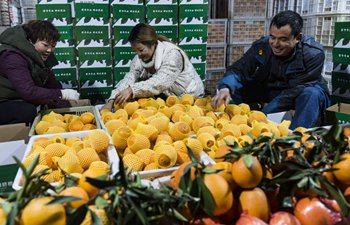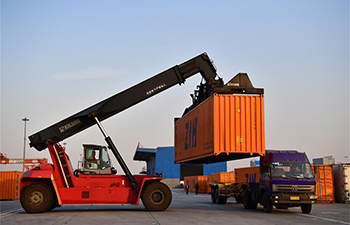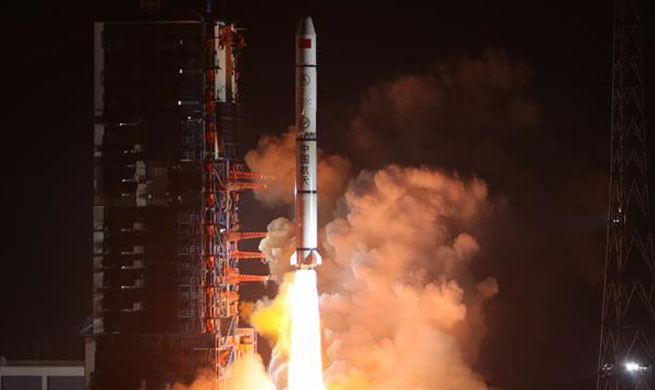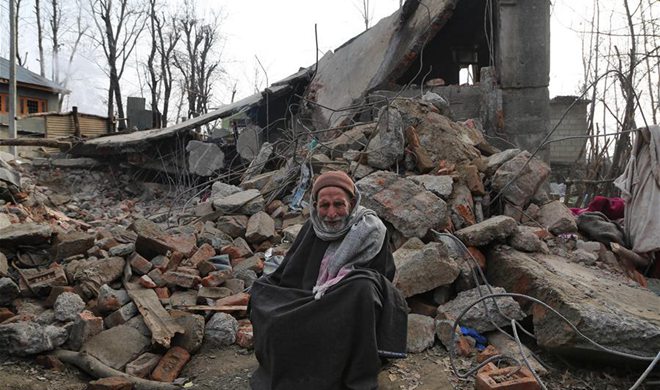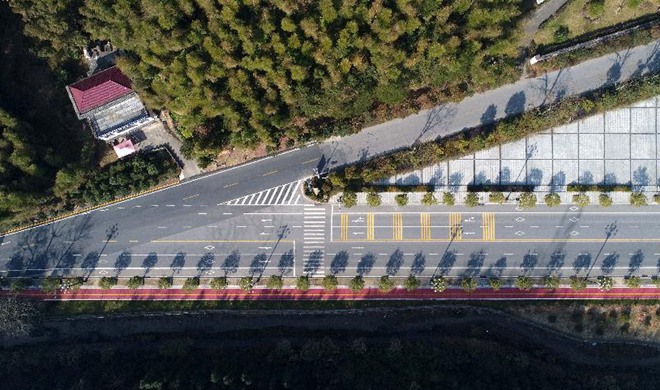BAGHDAD, Dec. 26 (Xinhua) -- The parliament speaker of Iraq's semi-autonomous region of Kurdistan declared resignation on Tuesday, protesting the deterioration of political and economic situation in the region and the use of force against anti-government demonstrations.
"I officially announce my resignation from the post of Parliament Speaker, and will continue my work in the parliament within the opposition group," Speaker Yousif Mohammed from the Gorran Movement said at a press conference in the city of Sulaimaniyah in northeastern Iraq.
Mohammed accused the Kurdish Regional Government (KRG) of using force to suppress the demonstrations that erupted in the Kurdish region amid widespread anger over unpaid salaries and corruption.
The Kurdish government "used force (against protests) in order to achieve illegitimate goals and to stay in power," Mohammed said.
"The current government has no choice but to declare its failure, and the protests are evidence (to the failure)," he said, warning that "the continuation of the situation as it is will lead to a greater risk."
On Dec. 20, two Kurdish parties, the Gorran Movement and the Islamic Group of Kurdistan, withdrew from the regional government headed by Kurdish Prime Minister Nichervan Barzani.
The decision came after a meeting of the two parties' leaderships, in which they discussed mass protests in part of the region that left many Kurdish people killed and wounded.
The Gorran Movement has four ministers in the KRG cabinet, while the Islamic Group has two.
Also on that day, the Gorran Movement issued a statement about the protests in the Kurdish region, saying the demonstrators were pushed by the failure of the regional government to tackle the corruption and injustice in the past years.
"Resorting to demonstrations and protests in the streets of the cities and districts of the Kurdistan region is due to the failure of governance, monopoly and corruption," the movement said.
"We call upon the Peshmerga and Asayish (Kurdish security) forces and the police to maintain the security of demonstrations and not to take up arms against their sisters and brothers, and to take responsibility for protecting the lives and property of the citizens," it added.
On Dec. 19, heavy clashes erupted in the town of Rania in Sulaimaniyah Province, where security forces opened fire and used tear gas against protesters who torched offices of the Kurdish parties, leaving five killed and about 80 others wounded.
Clashes also erupted in Sulaimaniyah where security forces fired rubber bullets and used tear gas to disperse demonstrators.
The protests were sparked by frustration over unpaid salaries to teachers and other civil servants, in addition to the deterioration of basic services and widespread corruption.
The Kurdistan region has been suffering from financial and economic hardships as a result of disagreement with the federal government in Baghdad over distribution of crude oil revenues extracted from the northern oil fields.
The financial hardship started to increase after Iraqi forces retook control of the oil-rich province of Kirkuk and some other oil wells in the disputed areas on Oct. 16.
Tensions have been running high between Baghdad and the region of Kurdistan after the Kurds held a controversial referendum on the independence of the Kurdistan region and the disputed areas on Sept. 25.
The independence of Kurdistan has been fiercely opposed by the Iraqi central government.







